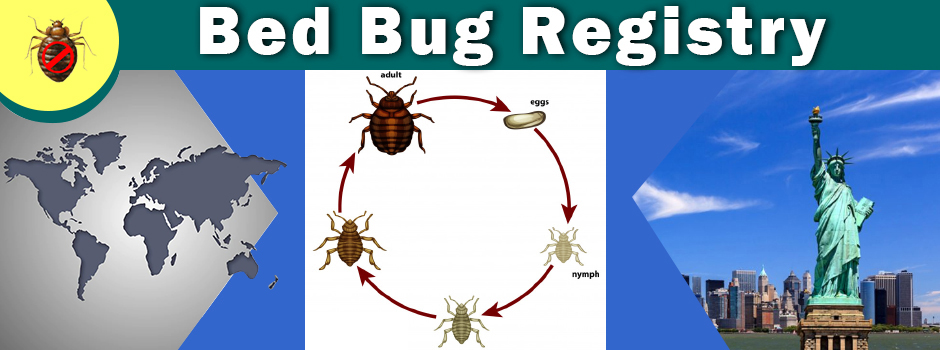Tiny insects the size of apple seeds are infiltrating Alaska, sucking on the blood of unsuspecting travelers, apartment dwellers, home owners, school children and the elderly, among others.
People from all walks of life are struggling with them, said Karin Hendrickson, pesticide control program manager with Alaskas Department of Environmental Conservation. We get multiple calls a day.
The pest in question? Bed bugs. Theyre becoming a big problem in many parts of the state, particularly rural areas, health officials and exterminators say.Hendrickson will speak about Alaska's bed bug problem at a tribal environmental-management conference tomorrow in Anchorage.
Her office used to field about one or two bed bug calls a year, she told KTUU. Now its about one to three calls every day."
State epidemiology officials have also noticed the upward trend. As far as whats causing bed bugs to proliferate in Alaska, they cite increased travel, immigration, and bed bugs becoming resistant to insecticides.
Anchorage-based American Pest Management services cities and remote villages across Alaska. Larry Jones, operations and technical director, said hes never been so busy and bed bugs are his prime target.
...
Twelve years ago we were doing one or two bed bug jobs every month or so. Now I have seven techs working seven days a week in Anchorage alone. In Fairbanks, I have three techs and theyre working six days a day, and theyre booked solid, Jones said.
Jones has come up with a neighborhood discount pricing program tailored for villages. Normally, if one of Jones teams travels to a remote location they would charge $2,000 plus airfare per family or single customer. But because the problem has grown so much, people are now pooling resources. If Jones gets five or six families that want their homes exterminated together, hell charge a flat rate of $2,000 plus airfare for the group.
Jones gets rid of the bugs with a variety of treatments. Portable heat chambers are a preferred method for remote communities. Jones techs will place contaminated items like sofas and mattresses inside the heated chamber and crank it up to 145 degrees F. The furniture, clothing, or infested items will essentially cook for a number of hours until the bed bugs and their eggs are dead.
While calling in a professional is an option, its costly and Hendrickson likes to stress that there are a number of steps people can take to eliminate the problem on their own.
The first thing to do is to inspect beds and sofas regularly, looking at mattress seams, box springs, and others nooks and crannies where bed bugs like to hide. Washing sheets and other bedding regularly is recommended, as is cleaning up cluttered spaces, especially in the bedroom. People should consider using bed bug-resistant mattress encasements as well, said Hendrickson.
If you find bed bugs, dont panic, both Hendrickson and Jones said. Bed bugs arent known to transmit disease although they are considered a public health nuisance and can cause adverse physical, mental and financial consequences, according to the state epidemiologists office.
If items are heavily infested and cant be washed and put in a dryer, it might be best to throw them out instead of trying to kill each and every bed bug and egg. But many places, like hard surfaces, can be wiped down with household cleansers and the bugs squished, placed in plastic bags, and disposed of properly. The Department of Environmental Conservation has an entire page devoted to bed bugs with lots of tips on control and prevention.
Hendrickson and others recommend checking out a hotels bed bug report card before traveling. Bedbugregistry.com is one source but lots of travel review websites are easily accessible online.
Whenever she stays in a hotel Hendrickson always places her luggage (a duffle bag that she can immediately wash and dry at home) on the toilet or in the bathtub before checking the bed thoroughly.
EPA recently awarded a grant to Bristol Bay Area Health Corp. and Tanana Chiefs Conference to address bed bugs in rural Alaska. Leif Albertson, with the Cooperative Extension Service in Bethel, is a member of a new advisory group being formed as a result of the grant. He said that funds will be used to create tools and do outreach to eradicate bed bugs in rural Alaska. Some of the funds will go toward building reusable hot boxes that be used for decontaminating large items like couches and other furniture infested with beg bugs.
Im really excited about it, Albertson said.
Original post:
Officials: Bed bug infestations on the rise in Alaska ...

 Residence
Residence  Location
Location 
